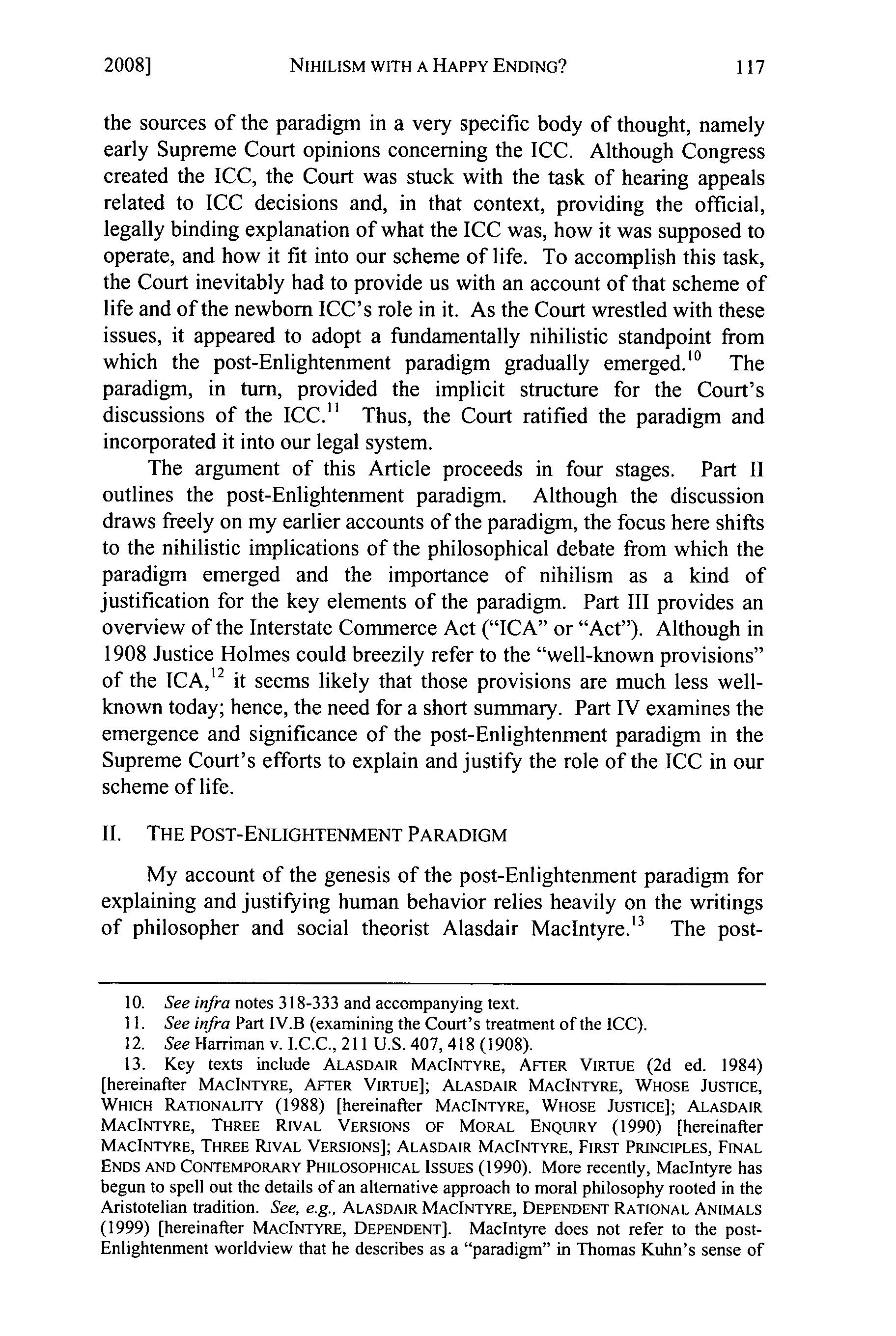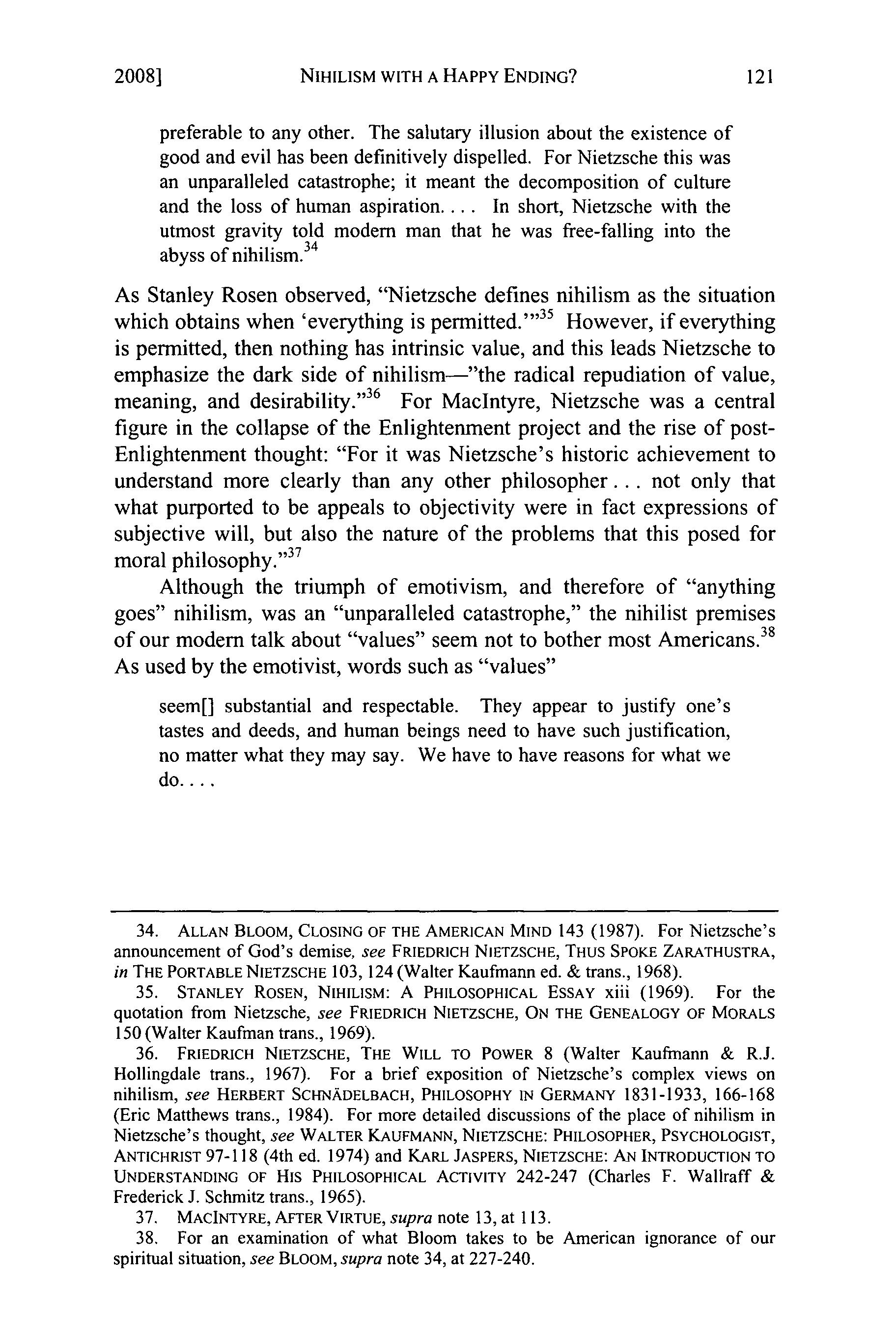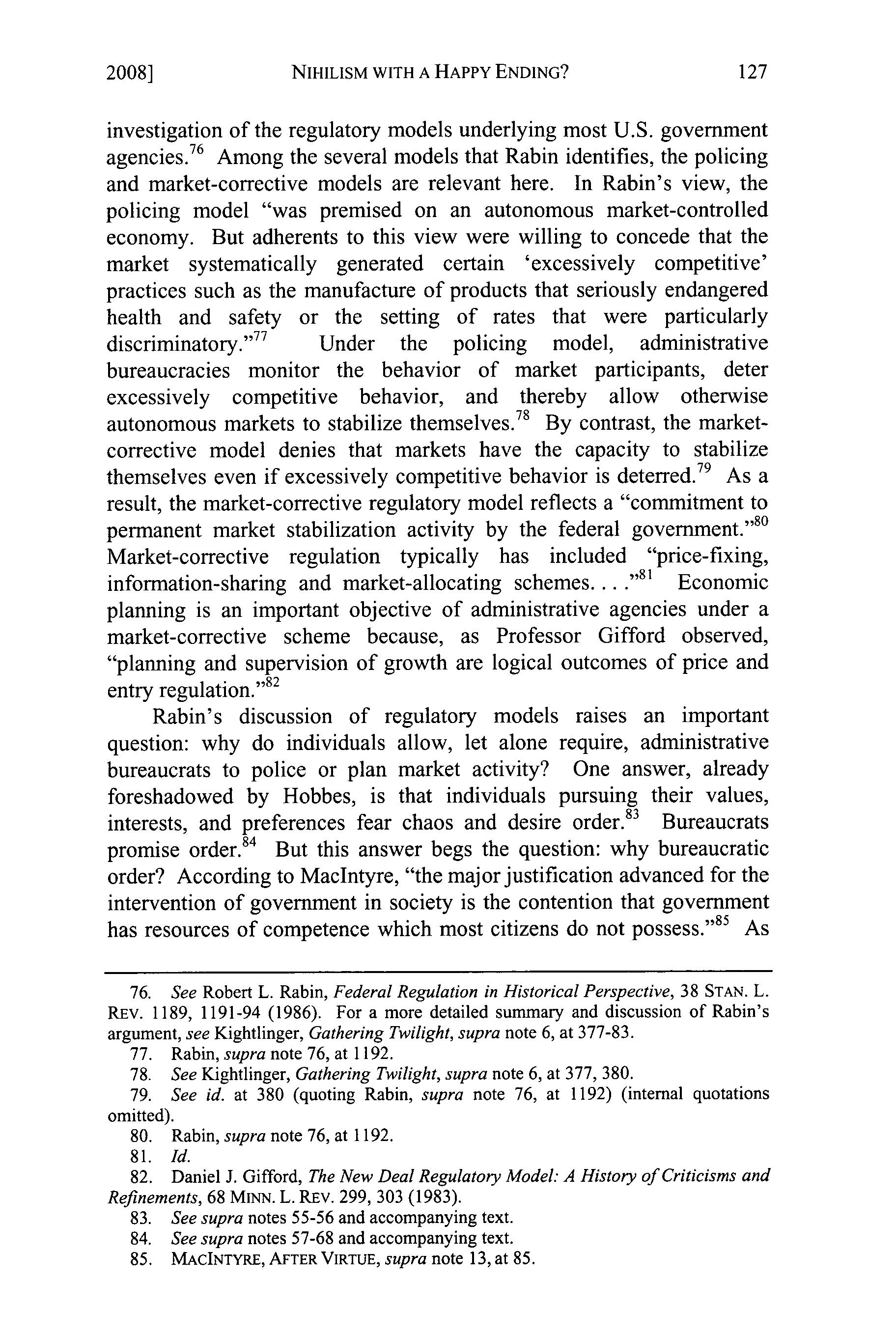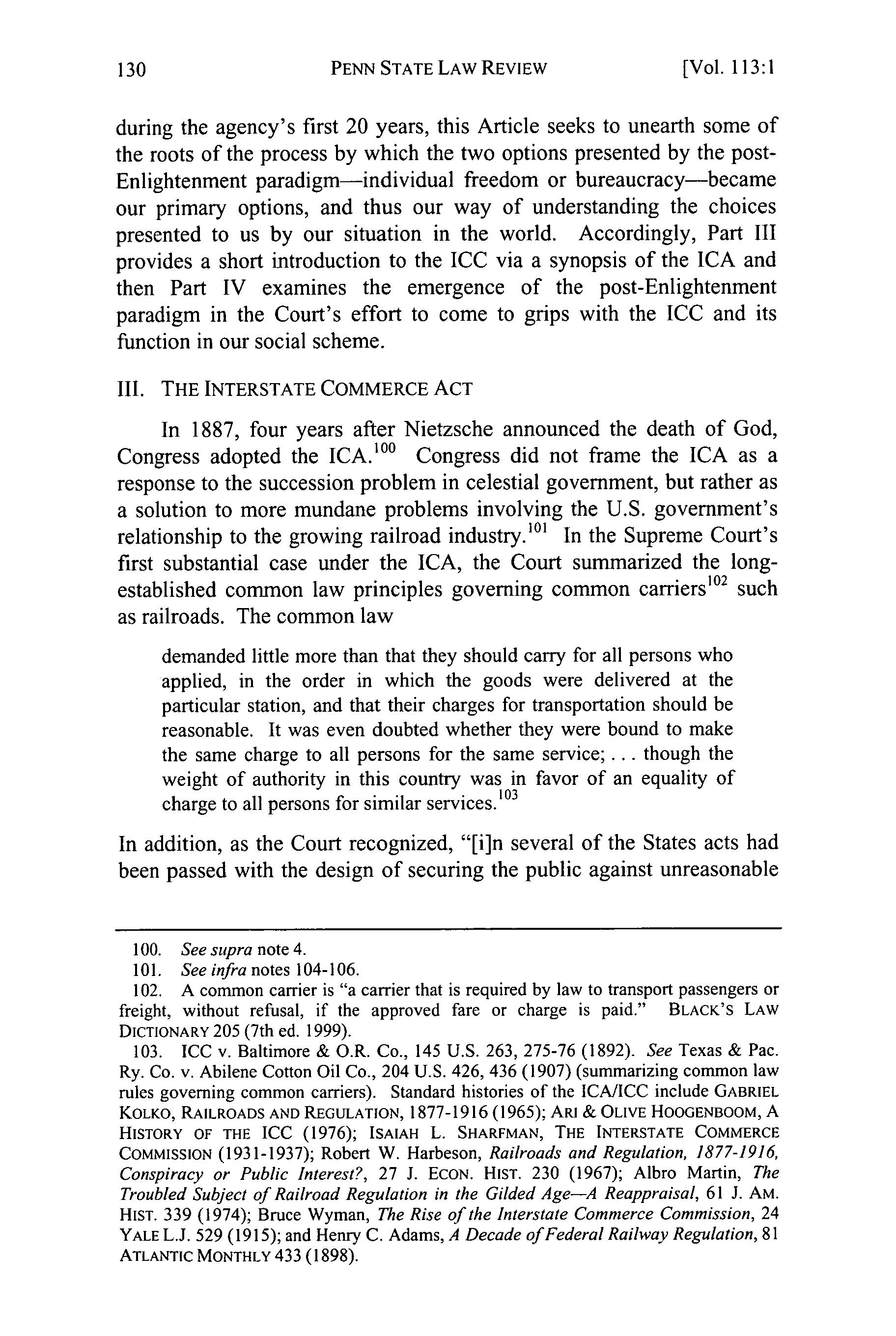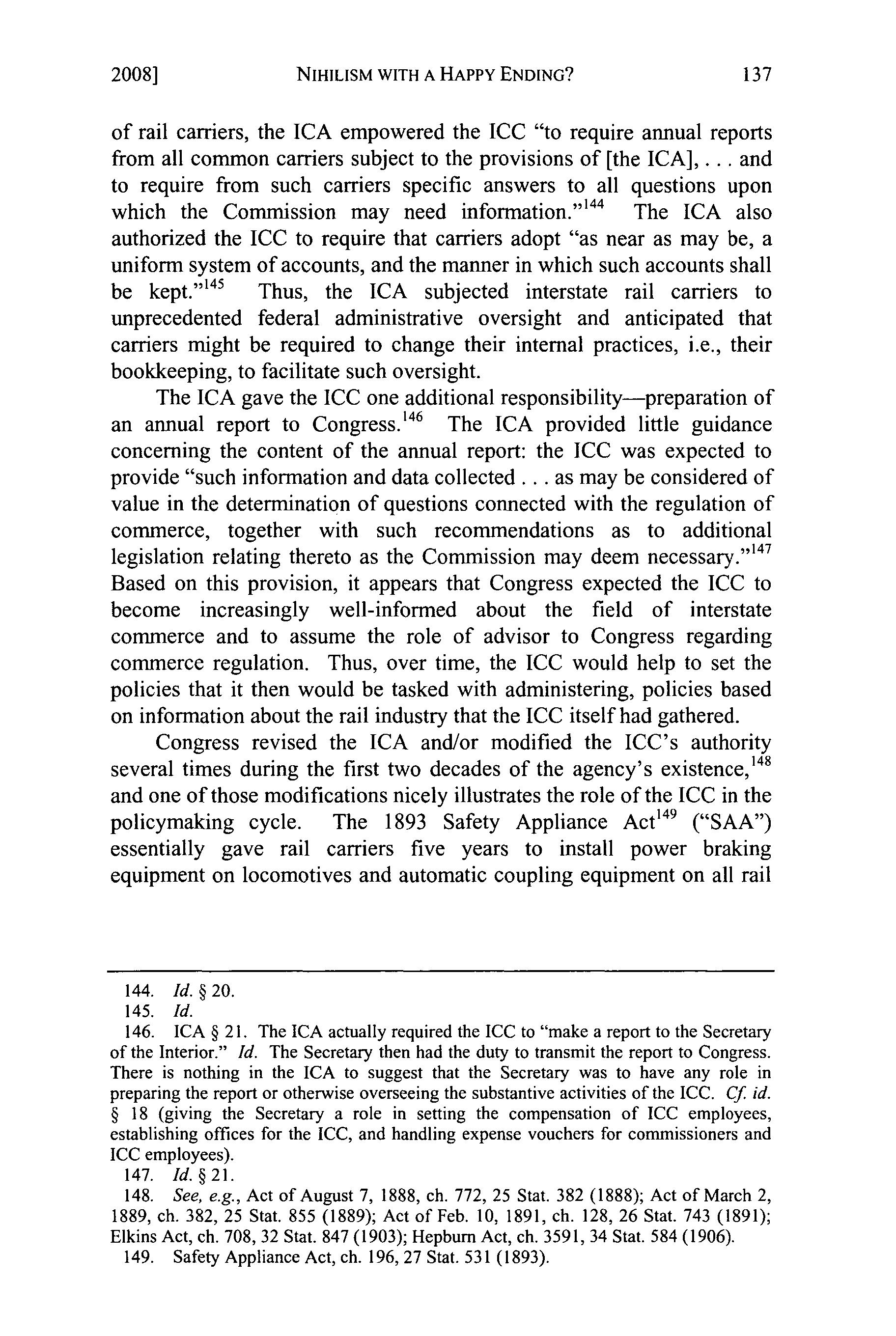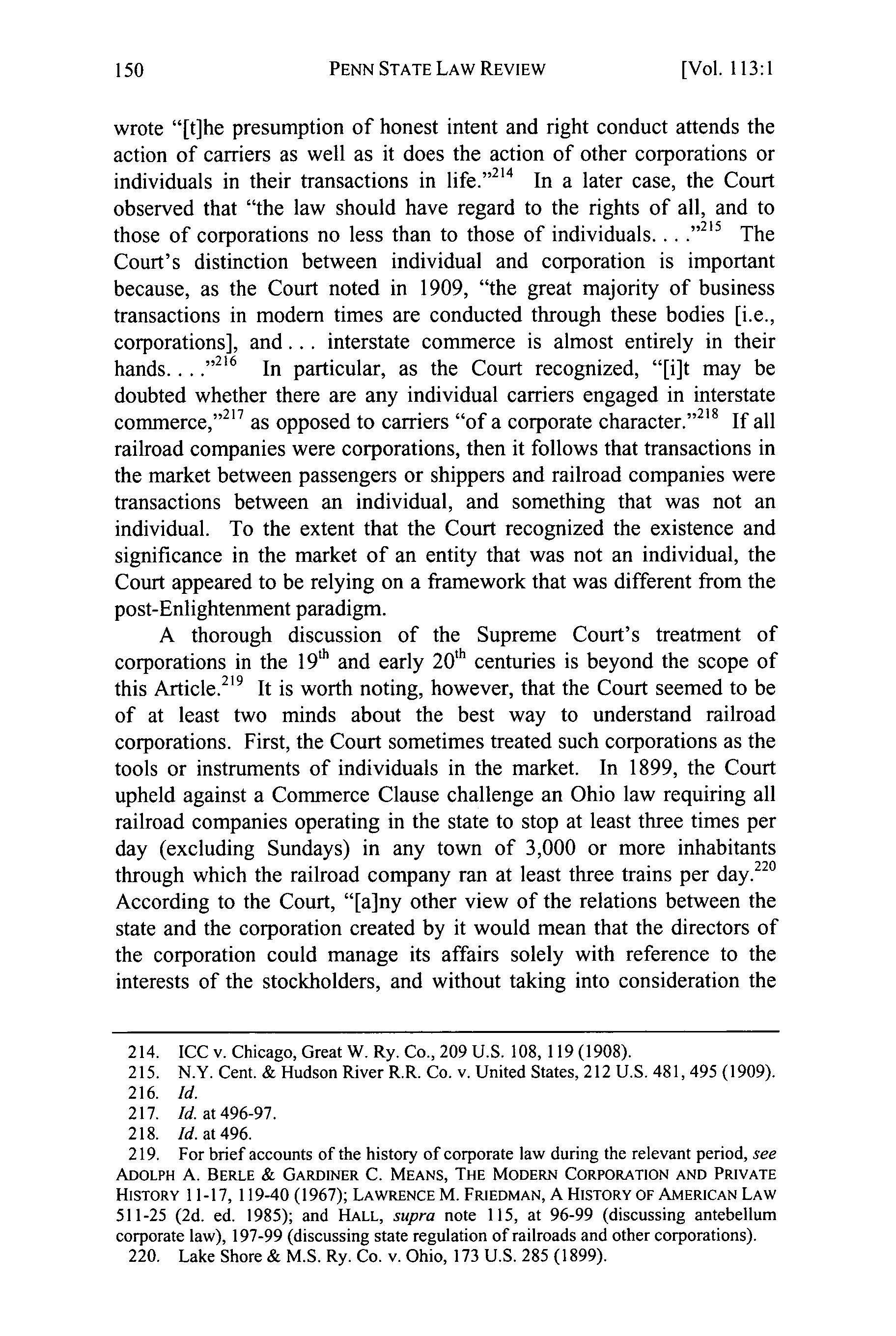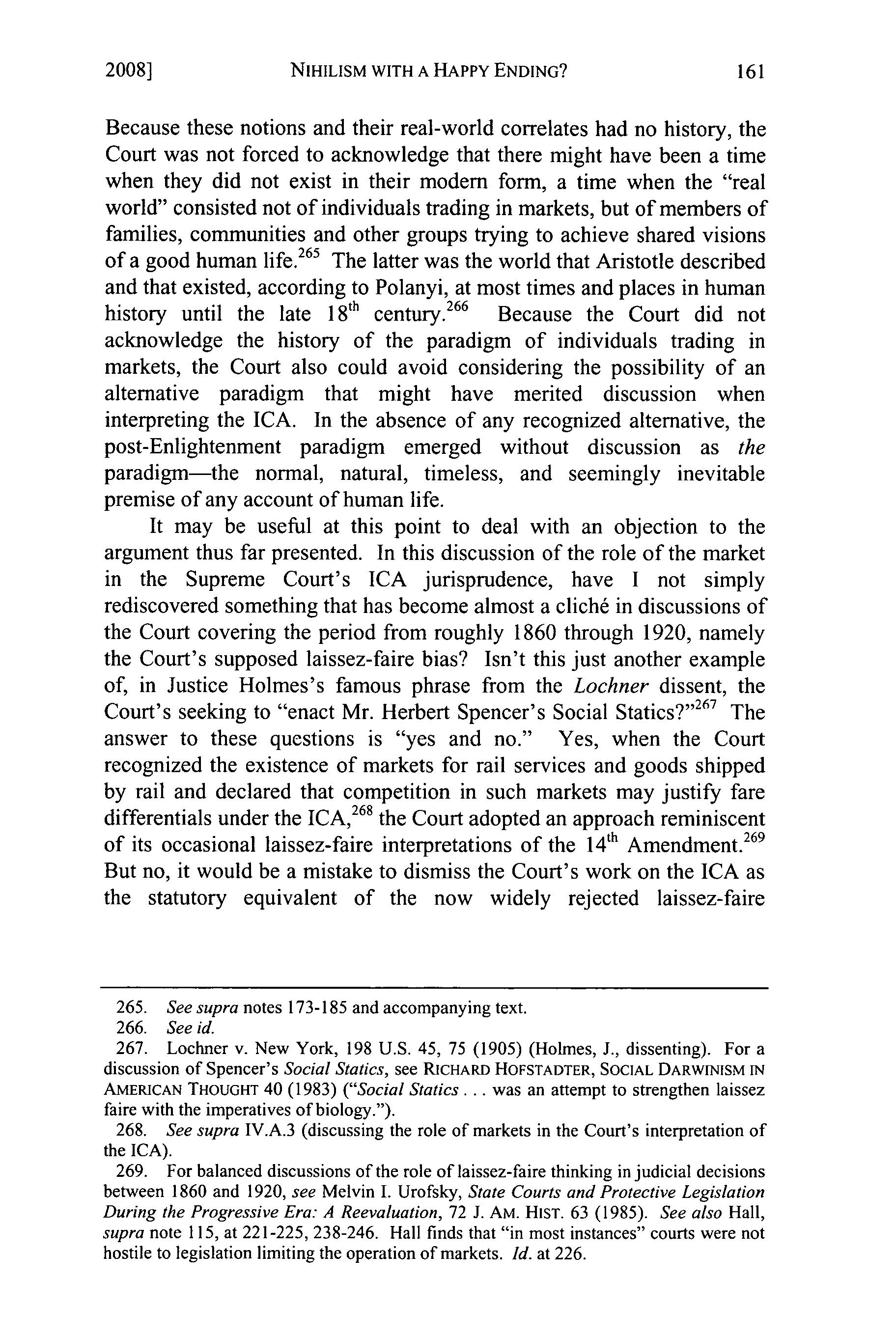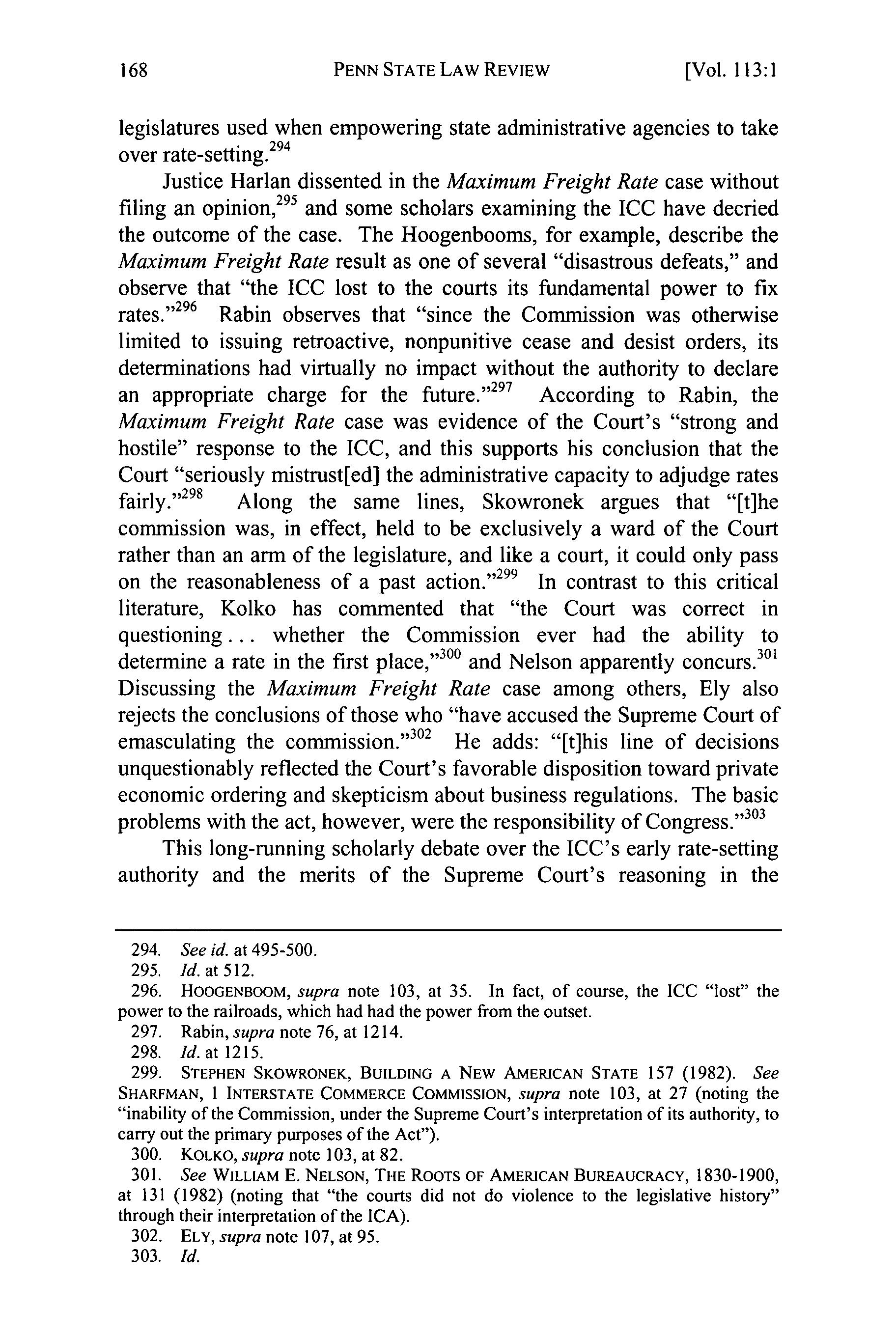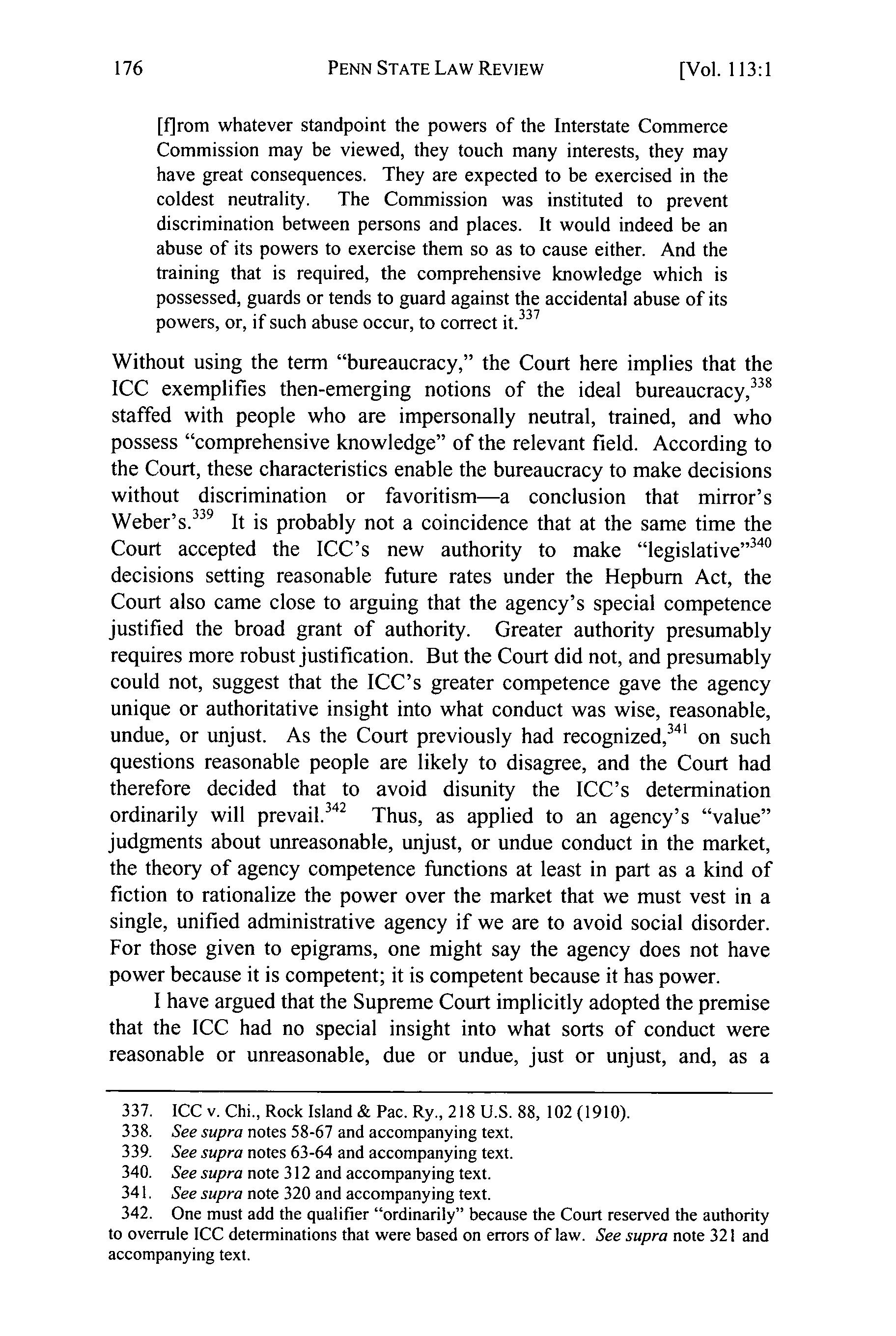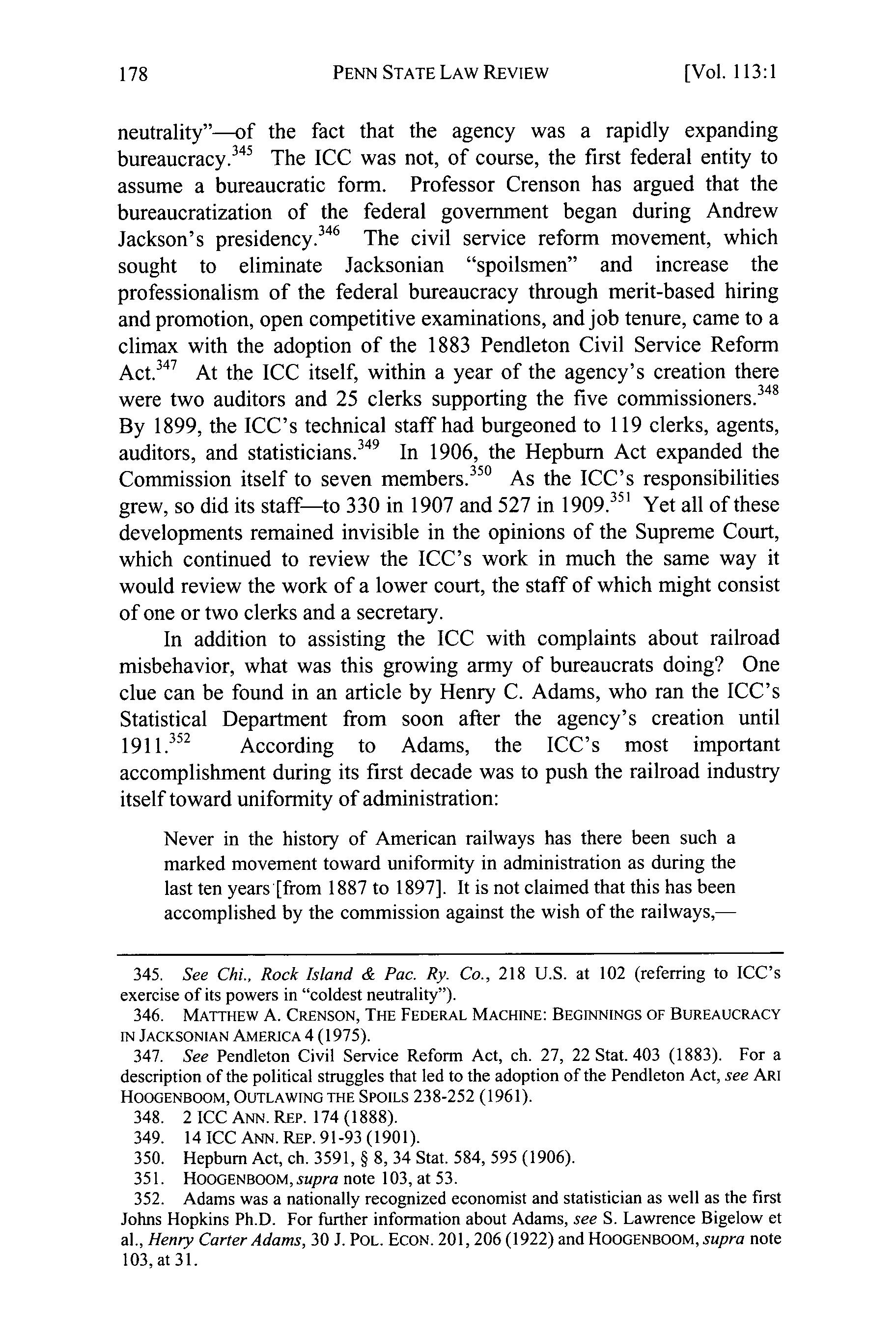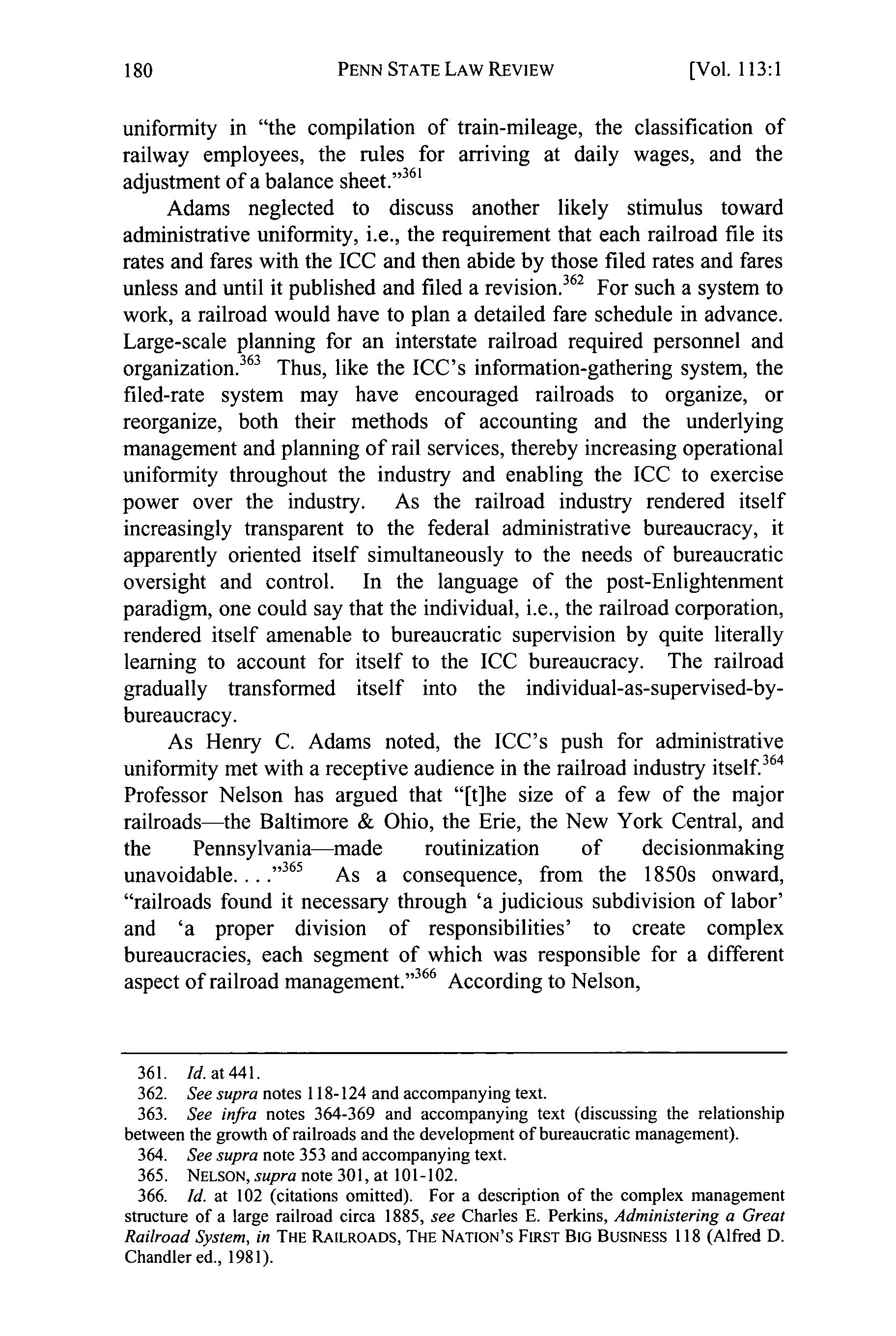University of Kentucky University of UKnowledge UKnowledge
Law Faculty Scholarly Articles
Summer 2008
Nihilism with a Happy Ending? The Interstate Commerce Nihilism with a Happy Ending? The Interstate Commission and the Emergence of the Post-Enlightenment Commission and the Emergence the Post-Enlightenment Paradigm Paradigm
Mark F. Kightlinger UniversityofKentuckyCollegeofLaw, mfkigh2@email.uky.edu
Follow this and additional works at: https://uknowledge.uky.edu/law_facpub

Part of the Administrative Law Commons, and the Law and Philosophy Commons
Right click to open a feedback form in a new tab to let us know how this document benefits you. Right click open a feedback a new let know how document you.
Recommended Citation
Recommended Citation
Mark F. Kightlinger, NihilismwithaHappyEnding?TheInterstateCommerceCommissionandthe EmergenceofthePost-EnlightenmentParadigm, 113 Penn St. L. Rev. 113 (2008).
This Article is brought to you for free and open access by the Law Faculty Publications at UKnowledge. It has been accepted for inclusion in Law Faculty Scholarly Articles by an authorized administrator of UKnowledge. For more information, please contact UKnowledge@lsv.uky.edu
Law Faculty Publications
Nihilism with a Happy Ending? The Interstate Commerce Commission and the Nihilism with a Happy Ending? The Interstate Commerce and the Emergence of the Post-Enlightenment Paradigm Emergence the Post-Enlightenment
Notes/Citation Information
Notes/Citation
Penn State Law Review, Vol. 113, No. 1 (Summer 2008), pp. 113-187
This article is available at UKnowledge: https://uknowledge.uky.edu/law_facpub/355

Nihilism with a Happy
Paradigm
Mark F. Kightlinger*
This Article examines early Supreme Court opinIOns about the Interstate Commerce Commission (ICC)-the first federal administrative agency-in an effort to identify the intellectual roots of the modern administrative state. The Article argues that the Court's effort to explain and justify the function of the newborn ICC shows the traces of a postEnlightenment crisis in the field of moral philosophy-i.e., the growing conviction that it is no longer possible for reasonable people to agree on what constitutes a true, objective, universally valid standard of reasonable or just conduct. From this essentially nihilistic starting point, the Court helped to fashion a new post-Enlightenment paradigm under which the function of an administrative bureaucracy such as the ICC is to impose order on a market consisting of individuals pursuing their non-rational interests and preferences in the absence of an objective, shared moral framework. The Court thus gave its imprimatur to what has become our way of understanding who and what we are, namely, individuals who require bureaucratic supervision and bureaucratically imposed order as we pursue our non-rational wants and needs in market-based interactions with other individuals. Our need for some kind of order is the sole rationale for this bureaucratically imposed order because, by hypothesis, there no longer exists a true, objective, universally valid standard against which any such order can be measured. This Article's account of the post-Enlightenment paradigm, its genesis, and its implications builds on the work of philosopher and social theorist Alasdair MacIntyre as well as on two
* James and Mary Lassiter Associate Professor of Law, University of Kentucky College of Law; J.D., Yale Law School, 1988; Ph.D., Yale University, 1991; B.A.IM.A., Cambridge University, 1983/1995; B.A., Williams College, 1981; Partner, Covington & Burling 1999-2004.
113

114 PENN STATE LAW REVIEW [Vol. 113:1 recent publications by the author examining the intellectual framework underlying u.s. and European Internet privacy regulation. I. INTRODUCTION ........................................................................... 115 II. THE POST-ENLIGHTENMENT PARADIGM ................................... 117 III. THE INTERSTATE COMMERCE ACT ............................................ l30 IV. THE ICC AND THE POST-ENLIGHTENMENT PARADIGM ............. l39 A. Individuals & Markets 140 1. The Historical Background-Roots of the 19 th Century in a Different Form of Life .............................. 140 2. Individuals in the Supreme Court's Interpretation of the ICA .......................................................................... 145 3. Markets in the Supreme Court's Interpretation of the ICA ................................................................................ 153 B. Administrative Bureaucracy in the Supreme Court's Interpretation of the ICA .................................................... 164 1. The ICC & Rate-Setting ................................................ 165 2. ICC Authority & Expertise: Power Without Standards ....................................................................... 169 3. ICC Investigations and the Rise of the Bureaucratic Corporation 177 V. CONCLUSION 185


